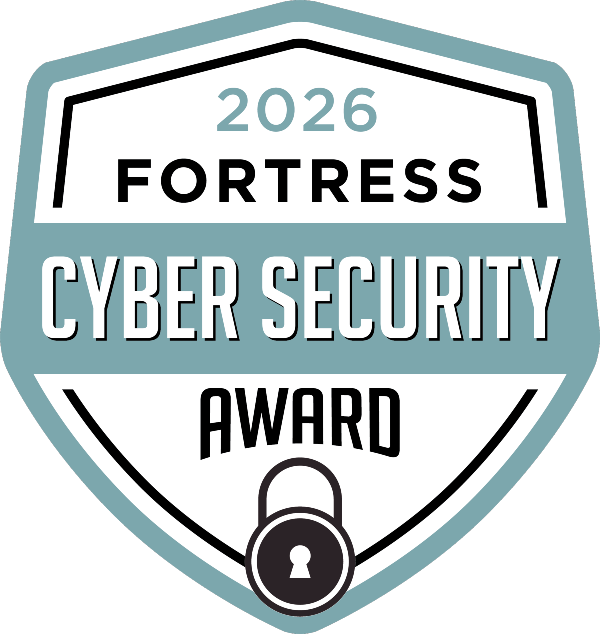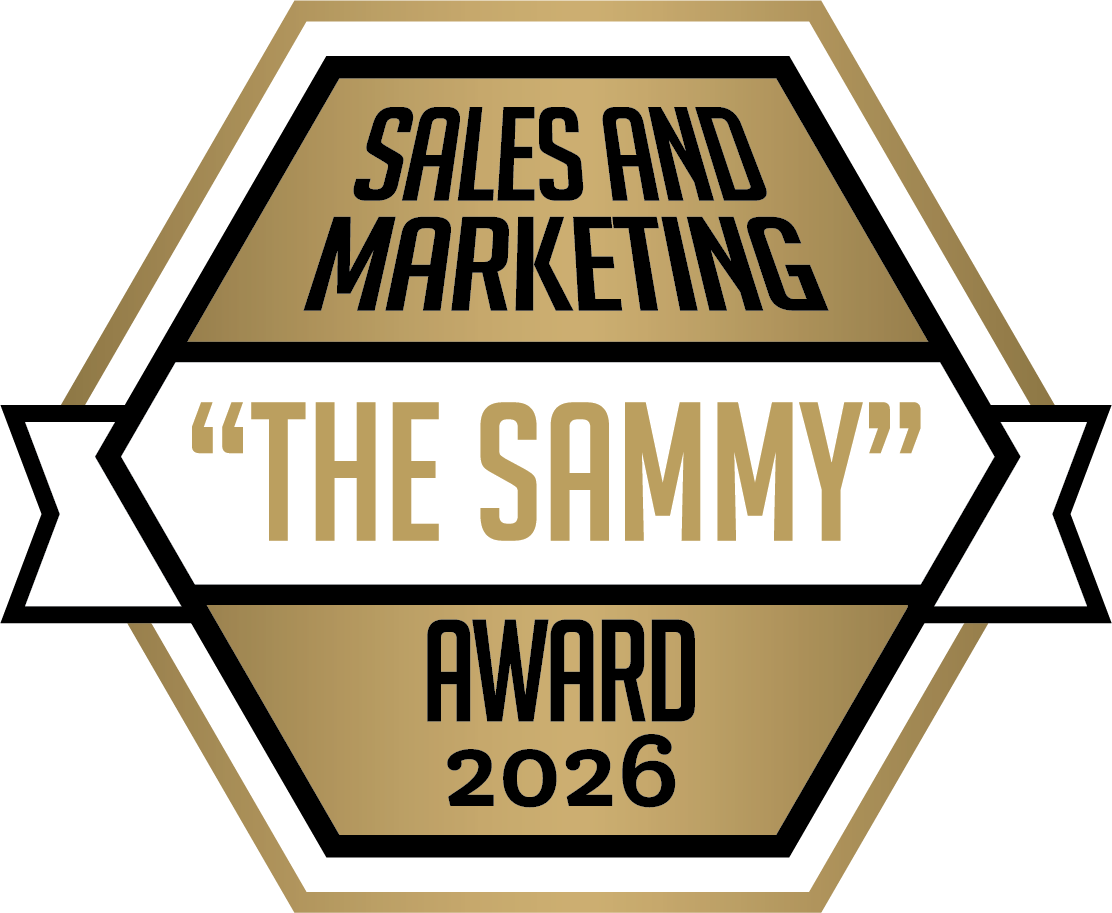


We recently sat down with Rene Lacerte, CEO of BIll.com to discuss how he differentiates his product in a crowded and complex market. Rene shared his secret which includes his passion for managing bills from both sides of the billing equation - the customer paying a bill and the company generating the bill. His other secret is having a strong foundation in how employees treat other employees and customers. Unlike other platforms, Bill.com is laser focused on helping companies collaborate on the bill so decision making about payments is more efficient. No more searching file cabinets!!! Listen to the interview
Interview Transcript
Russ: Hi, this is Russ Fordyce from the Business Intelligence Group and today we’re going to do a Big Awards Sync with René Lacerte from Bill.com. You may remember Bill.com. They were a 2012 Big Awards winner, and I’d just like to thank René for agreeing to do this and welcome to the Big Awards Sync.
René: Well, thank you Russ. I’m looking forward to the conversation and thank you for the award last year. It was great recognition for the team and everybody has been excited with all the great stuff you’re doing, corralling the learnings from all the different entrepreneurs and founders that you’re talking to, so thank you.
Russ: I appreciate that. Yeah, absolutely! Tell me a little bit about how Bill.com got started, especially in this online space with … You’ve got all sorts of hungry jackals out there and big gorillas. How did you guys get into this space?
René: It really came from a personal opinion that I felt and experienced when I was running my first company, a company called PayCycle that did online payroll for businesses, but it really goes even back further than that. I am a fifth generation entrepreneur. My dad and grandfather used to teach me all the time that cash is king. Stretch out the payables and pull in the receivables.
When I started running PayCycle in 1999, none of the tools that I had built had Intuit, and I had worked at Intuit on bill payment and bill presentment and I looked at the competitive landscape. None of the things I’d seen or built enabled me to really do what my dad taught me, which was to stretch out the payables and pull in the receivables, and so I had this very cumbersome manual process to do it.
I realized that the web was so much more than just anytime anywhere. It was really all about collaboration. I started thinking about why is it that I’m not using those tools and it always got back to I didn’t have the collaboration that I needed to be able to manage my payables and receivables in an automated fashion. That was the Genesis. I started thinking about that and had a couple of big ‘ah-ha’s’ around how the web enabled that.
Russ: It’s interesting. You have a lot of guys, it seems like, that are in the transaction business and then you have other guys that are in the collaboration business and don’t do the transactions. Is that the sweet spot for you guys, doing both sides of the house?
René: Yes, a big part of it is that in one of those ah-ha moments for me was that the transaction that you might see in your accounting software or your banking system, that’s the tip of the transaction. All the process and the collaboration with people, which might be your employees, your customers, your vendors, with documents, which might be your contracts, your checks, your bills, your cleared check images, all that stuff or systems, which might be your accounting system and banking system, all those things are the collaboration process that is far more critical for making decisions about payments.
We handle the transaction in its entirety and we help you make that decision. We help you collect on those payments that are owed to you and then we integrate with your accounting systems or your banking systems to be able to make the money flow, but it’s everything before you make that decision is where we’re focused and where our expertise is.
Collaboration is key to how businesses manage their back offices that they really are working with lots of people and lots of different systems and lots of different documents to make these decisions. That was the ah-ha moment: the web gave you that ability to share that collaboration instantaneously with the people at the right level.
Russ: You guys actually work both sides of the house too, right? You work on the company side of the house, helping those companies to pull in that data and to do bill presentment. You also work with banks, right?
René: We do. We work with both the accounting systems and the banks and the way we work with the banks is that we enable electronic payments. We enable all the security and fraud measures that typically, they tell me, the Fortune 5000 would get. We make it available for everybody so that their account is protected and more secure than you could ever really do on your own.
We enable all the benefits of an integrated treasury and management solution, which again, the Fortune 5000 companies would have. Most small businesses just don’t have the time to synchronize all that data, upload those types of files, download those exports from the bank.
It is really a contributing factor to our growth is that we are able to make electronic payments a reality. At this point, over 40% of our payments are electronic, and we’ve taken our customers from 0% to 40% in a relatively short period of time.
Russ: You guys are actually unique in that you’ll actually send checks and invoices either U.S. Mail or the electronic method, right?
René: Exactly, one of the ah-ha, again another ah-ha moment, was realizing that paper doesn’t go away overnight. You have to have a bridge to the paperless world. The way we do the bridge is that we will mail a check and we will mail an invoice, if you are a vendor or you are a customer that is not capable of receiving an electronic e-mail or payment. From our perspective this is critical to create that transitory vehicle to help businesses migrate into the 21st century and become, for example, the No-Check CEO, which we have done a lot of talking about.
Russ: What percentage of transactions … I imagine it’s going steeply down towards electronic. What percentage of your transactions today is paper versus bill versus electronic?
René: A little bit over 40% of our transactions are electronic. The typical business is probably at less than 10%, and over 80% of the payments in a typical business are made via check. There are probably another 10% or 15% that are being made via credit card.
We’re moving over $5 billion a year now and 40% of that is purely electronic-to-electronic. The other 60% is electronic to paper and the trend’s improving every month. It is quite interesting just to see if people adopt and really people want to be the No-Check CEO . They want to get rid of their paper. They want to get rid of all the filing cabinets in the office. They want to be able to manage their business from anywhere and make sure their customers and vendors either pay them faster or get paid faster.
Russ: I like your phrase, the “No-Check CEO.” We’ve also been talking a lot about the remote control CEO, and I think that plays into this, where CEOs and management want to be able to manage from anywhere and it sounds like you guys have a great tool to do that.
René: There’s a phrase that I use that I’ve heard some VCs say a while ago, which is that, “With the Internet the noose gets looser, but the leash gets longer.” When I think about my dad’s experience in work, he worked his butt off and then when he got home, he was home, right? He missed a lot of things because he couldn’t do work anywhere but the office.
Whereas, I work my butt off, but if there’s a swim meet, I go to it. If the kid has a play, I go to it. That flexibility, that remote-control-ness of managing your business, whether it’s using your e-mail to give some direction to team members or you’re using something like Bill.com to actually manage the funds flow and the customers and the payables and the vendors that you have. That’s one of the beauties of the Internet. I think you get to do what you want when you want and that’s a lot better than being forced to do what you have to do, when you have to do it.
Russ: Now, you guys really try to sell across all sizes of business. Have you found any one clear trend in what market you’re serving? Is it a very small business or is it the medium-sized or large? Have you honed in on that or is it still widely across all sizes?
René: It definitely is a wide adoption. Thirteen percent of the customers have one employee and 3% are over $100 million in revenue, but we would say that our sweet spot is probably that half a million to $50 million.
What we see is when people start to have more than a dozen, 10, 15 transactions a month that is when they start feeling the pain of managing the the collaboration across the documents and the people in the systems. That’s when we really start to create a tremendous amount of value.
Our average cash customer tells us that they save 50% to 75% of the time it takes to manage their back office and that they get paid two to three times faster. You wouldn’t see that if you only had three bills a month because it’s not that big of a back office, right?
Russ: Right.
René: When you get to 10 or 15, you start to really feel that pain of the filing and the collaboration with your accountant or whatnot. We do think it’s really anybody with a business can use it. We just think that the sweet spot is half a million to $50 million.
Russ: With this change, you guys have really been growing tremendously over the last several years. How do you start to manage that growth and what does it look like? Are you guys doubling every year? Are you in that kind of hockey stick growth mode still?
René: We definitely are. We have been doubling or a little bit more than doubling every year, and the way you manage at first is you’ve got to have a great management team. There’s no way I can do everything that I used to do. You have to give the responsibility out and do the best you can to give them the direction, and then every now and then you have to stick your finger in and say, “Hey, I’d like to have a little change,” but you have to have a great management team to be able to manage the type of growth that we have.
You have to have started from the beginning with a vision that we were going to grow this way and build a platform so that we could actually add the customers at the rate that we’re adding, move the money at the rate that we’re moving. Those two things, I would say, are the most important for growth is that you have great people. They hire great people and if you have the right vision from the beginning, you’re building a platform that scales and that’s not easy to do. It was actually expensive, in the beginning, to do.
Russ: I guess part of your growth is scaling your infrastructure. Part of it is scaling your team. How do you go about scaling that team? It’s not a linear growth like it is with probably your servers or your customers, but how do you go about growing that team in an efficient way?
René: You have to have confidence that you’re going to grow. Then you have to hire the right person for where you think you’re growing into. I think one of the things that we do at Bill.com is, in addition to hiring, there’s a number of core values that I identified before starting the company and the original founding team got together and made sure everybody was on the same page. Those values are painted on the walls around the office, and we give awards out for those people that represent those values on a monthly basis.
Some of those values really involve communication. We want people to be proactive in their communication. We want them to be dedicated to listening. We want them to be committed to the success of each other and our customers. We want them to be passionate about what they do. We want them to be eager to try and learn new things.
Many of those values are really around how the teams work together. If those core values are in place and you hire to those values, then conversations become easier. It really becomes the growth of the employee and the hiring and the conversations about how to make the team more effective become easier, because people are willing to stand up and be vocal about what’s not working and what is working.
As a result, one of the results of the values is I think people are working here and customers love our products and our support teams so our net promoter score after customers interact with us is high. It’s somewhere around 65 to 70 in any given month. People really do value the openness and the transparency that we provide and that goes back to the core values. I would say at the core you’ve got to have the values because if you don’t somebody else places them.
Russ: What are those core values that are painted up on the walls there?
René: It’s passionate about what we do and the way we do it. It’s dedicated to listening to each other, committed to the success of each other and our customers and our investors, proactive in our communication with each other and our customers and then eager to try and learn new things.
Really, they’re dedicated to listening, they’re proactive in communication. Those two go hand-in-hand, and when you practice them at a management team level or a company-wide level, you do get more openness and transparency and more opportunity for everybody to grow and reach their potential, and that is a core part of what I’m trying to get done here.
Russ: That’s great. Well, I think you’ve passed your presidential moment. You’ve reeled them off without looking at the walls, so congratulations.
René: Okay good.
Russ: It’s the price of milk. We were talking about it earlier. This is a space that is highly competitive. You do a lot of things where folks are coming after you. You’ve got FreshBooks and PayPal and then you have bigger guys out there? How do you stay ahead of all these guys? What are you doing to keep your eye on the trends and what trends are out there that you’re seeing?
René: The interesting answer to me on this is having the right vision from day one. I happen to be cleaning out my desk to make room for more chotskies because we had some more chotskies come through the office, and so I found some old business cards. The original business card that I made at Kinko’s six and a half years ago. The name of the company was CashView then, but it said “Automating payables, receivables and cash management.”
When you mention FreshBooks or you might think about an Intuit or a NetSuite or anybody else, none of them have that as their vision. FreshBooks is all about invoicing. Accounting software companies are all about accounting software and we’re all about that process of automating those things, which have not yet been automated through back office.
When you focus on that from the day that you start and you build a product and a management team and servers all around that vision, there are different competitive advantages that we have that others don’t have because that’s not their vision. When we talk to our bank partners this is something they’re craving having the ability to be involved in the cash management decision with their customer, and they can’t be involved unless you automate payables and receivables and they’re late.
That’s actually why I ended up buying the URL Bill.com is because the word Bill can both mean “Go bill somebody because they owe me money.” and “Did you pay the bills?” Right? It’s an interesting word in that it is spelled the same way but it means different things, depending on the context and so that’s why I wanted the URL and it’s why we feel like we have competitive barriers that we had that original vision that others don’t have.
Russ: What are the trends that you see coming on the horizon? I assume that the paperless world is rapidly approaching, even though Dunder-Mifflin would hate that, but what other trends are you seeing that you’re looking out 12, 18, 36 months, saying “We’ve got to start paying attention to that, maybe start investing in that.”
René: The first I’d say is this 80% of B to B payments are checks. That’s going to change. You’ve got to believe 10 years from now, and it was probably a 10-year process for consumers to adopt online bill payment, but you’ve got to believe 10 years from now that businesses aren’t going to be paying most of their payments via check, right? There are still checks that are going to be around, but there’s going to be a better solution that makes it faster for businesses to pay and get paid. I believe that trend is a really popular one.
I think mobile is a popular one, being able to really capitalize and manage your business from any device. As one example, I don’t log in to my accounting software ever. Maybe once or twice a year because the controller or GP finances out, but I do log in to Bill.com all the time, and if I happen to be on a plane on the runway it will be on my phone. If it’s in a taxi, it’ll be on my phone. If it’s at a dinner restaurant and I’m actually negotiating with a customer, I might want to look at the contract, it’ll be in the bathroom. That mobile thing is really important.
Then I would say the third trend is this notion of social, right? Everything that is social out there on the consumer front is really focused around consumers sharing their personal lives to the level that they’re comfortable sharing.
In the business world, why do businesses do business? They do business to interact and basically exchange money and goods and services, and the collaboration around businesses is all around the bill and the bill. I think that one of the big trends is that vendors and customers are going to want to be able to collaborate with each other with disputes, with additional services they want, with payment timing and payment information.
I think that’s a big trend because as consumers get more and more comfortable with the social media that they’re doing at home, they’re going to expect to have a similar social experience at work, and you just have to translate to that. We’re building a business payments network and we’ve got over … I think we’ve announced, we have over 175,000 members in the network, but that number is growing very fast, and we think that a year from now it’s four or five-hundred thousand. We think two years from now, it’s a million, and at some point when people are in the network and they can exchange and share information whether it’s payments, remittance data, invoices or notes that becomes extremely collaborative and extremely powerful.
We think that’s the trend. I think it’s just going to be different played in the business world than it has been in the consumer world.
Russ: I agree. This mobile and social world is really dynamically changing everything that we do and it will be interesting to see how you guys evolve, as well as everybody else.
René: I appreciate it.
Russ: The million-dollar question I love to ask CEOs like you is … You get an hour off a week usually. What do you do in your off time? Where do you spend your hour off other than the bathroom reading contracts?
René: What’s great about technology is I probably have a little bit more than an hour off, but I do work all the time, but I can do it anywhere, so my priorities at home are being with my kids. I have 10-year-old and an 8-year-old. They are both avid swimmers, and so I go to their swim meets. It’s actually more than … on average it’s probably about an hour a week, but some weekends it’s 16 hours of going to a swim meet.
I like to run. I’m a runner. I play Ultimate Frisbee. I try to take advantage of getting the exercise in because it does give you the energy for the late-at-night work that you end up getting to do.
Russ: That’s great. Well, we will wish your swimmers well.
René: Thank you.
Russ: I spend eight hours a day at swim meets too. I wouldn’t call it a great experience, but you get to see them for about a minute in the pool and that’s great.
René: It is amazing that you’ll go for all day and you’ll see a minute of swimming, but it is a social experience. That’s one thing I do like about it. There are a lot of parents you get to know and so that ends up being a social outlet, and a lot of times I’ll be sitting in the car working with my MiFi, between races.
Russ: What did we ever do without it?
René: Yeah, exactly, you didn’t go to the swim meet. That was why my dad did not see me swim nearly as often as I’ve seen my kids swim.
Russ: That’s great. That’s quality of life for sure. That’s absolutely true. Well I appreciate you taking the time with us. This has been René Lacerte with Bill.com, and hopefully we will see you in the 2013 Big Awards as well.
René: I appreciate that. Thank you for a great interview and lots of great questions. Let us know if there is anything we can do to help.
Russ: Thanks again and everybody keep an eye out for the next Big Awards Sync. Thanks René.
René: Thank you.
Russ: All right, have a great day.









